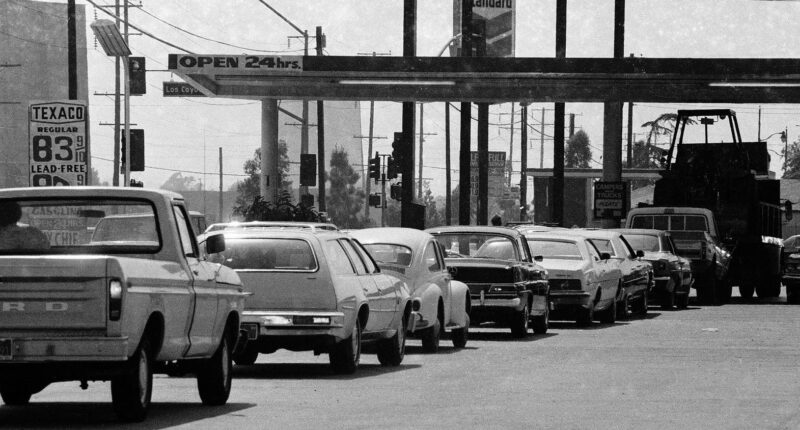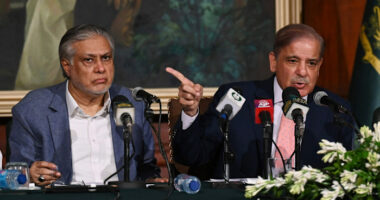Share this @internewscast.com
During Jimmy Carter’s presidency, a weak U.S. dollar significantly impacted his administration, a fact worth revisiting as Carter’s economic strategies gain renewed interest from conservatives.
In hindsight, many appreciate that Carter did not oppose Representative William Steiger’s inclusion of a capital gains tax cut in the 1978 tax reform. Carter also spearheaded industrial deregulation, particularly in the trucking, rail, and airline sectors. While these were positive steps, his administration faltered with its handling of the dollar.
It is crucial to understand that inflation essentially reflects a decline in the dollar’s value, which plummeted during Carter’s tenure. A clear indicator of this is the skyrocketing oil prices, which highlighted the dollar’s significant weakness and played a major role in eroding Carter’s presidency.
Warren Brookes, in his influential 1982 book The Economy In Mind, noted that from 1975 to 1979, oil prices in U.S. dollars surged by 43%. In contrast, during the same period, oil prices rose only 1% in German Deutschemarks and 7% in Japanese yen. These figures only account for the period leading up to 1979, which brings us to the appointment of Paul Volcker.
Carter’s selection of Volcker as Chairman of the Federal Reserve in 1979 is often lauded by conservatives under the mistaken belief that Volcker’s strict monetary policies curbed inflation. However, if one assumes that the Fed’s actions influence the dollar’s value—a premise that is not supported—then the acclaim for Volcker’s role should be reconsidered.
When Volcker took office in 1979, the average price of gold was $513 per ounce, a stark increase from the $147 average in 1977, Carter’s first year in office. This highlights the ongoing challenges with the dollar’s value throughout Carter’s administration.
That’s because Volcker was appointed in 1979, a year in which the average price of gold was $513. The price of gold averaged $147 in 1977, Carter’s first year in office.
By January of 1980, gold had risen to an all-time high of $875, meaning the dollar fell to all-time lows amid Volcker’s vain attempt to use interest rate intervention to shrink inflation. This is notable in an oil sense in that while the average price of a barrel was $15 in 1979, in 1980 (Carter’s last year in office), the average price was $36.
Carter plainly didn’t see the association between a falling dollar and rising oil. And while he correctly began the process of oil price decontrol that Ronald Reagan completed in one of his very first executive decisions as president, Carter didn’t grasp the significance of decontrol as evidenced by his comment while president that oil prices “are going to rise in the future no matter who is President, no matter which party occupies the administration in Washington, no matter what we do.”
Carter misunderstood what Reagan saw clearly about the folly of price controls, but most crucially missed the meaning of a falling dollar to an electorate that was earning dollars. Which means Carter missed out on the true inflation that pushed up the cost of all manner of market goods measured in dollars, oil most notably. Combine the latter with price controls that resulted in rationing and long lines for gasolines and, well, Carter’s loss in 1980 is more understandable.
It’s not just that the electorate earns dollars, and it’s not just that the electorate sees the dollars it’s earning exchange for less when an Administration’s Treasury makes a weak dollar its policy, it’s that investment returns are measured in dollars, investment is the source of all job growth, and the falling dollar sapped the very investment that powers economic growth. The latter zapped Carter’s presidency, and it did the same to George W. Bush’s.
Carter was in many ways good on the economy, but no president can overcome a weak dollar. Is President Trump listening?







